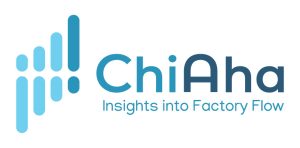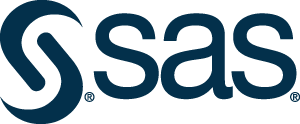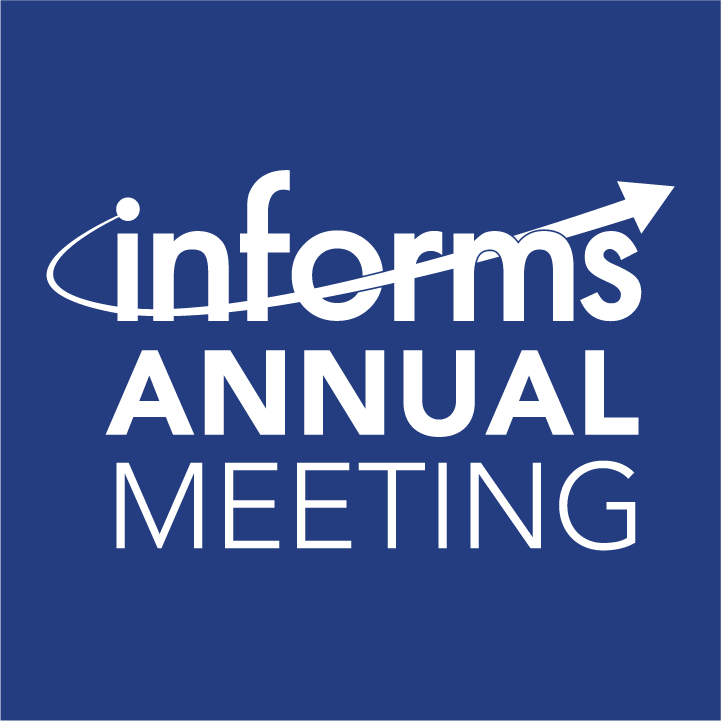Take advantage of these complimentary, pre-meeting Exhibitor Workshops for hands-on demonstrations of the latest industry products and software. All attendees are welcome to join onsite or pre-register. You’ll be able to add pre-meeting workshops to your registration in August. All Exhibitor Workshops will be held in the Seattle Convention Center Summit Building on Level 4 Saturday, October 19.
10am-12:30pm
Location: SUMMIT-448
Quantum Optimization
Presented by: Catherine Potts
Quantum computing has gone from the lab to the enterprise, and a recent Hyperion Research study reported that respondents overwhelmingly indicated that quantum computing-based optimization capabilities are seen as integral to optimizing their key business processes.
While you may think production use of quantum computers are years away, the first commercial quantum applications in production are using D-Wave’s quantum technology.
This workshop will cover the following topics:
- An introduction to quantum computers, quantum annealing, and optimization solvers
- What kinds of business problems are good candidates for quantum/ hybrid solutions
- Use case examples: how quantum hybrid is being used for optimization applications such as resource and workforce scheduling, cargo loading and other complex business problems
- How quantum systems are programmed, and the tools for developers. This will include live demos and an introduction to Leap, D-Wave’s real-time cloud service. Leap provides access to a portfolio of hybrid solvers, enabling enterprises to address all kinds of business problems that range in size and complexity.
- How to get started with quantum for business.
1-3:30pm
Location: SUMMIT-445

Elevate your Optimization Practice with latest Advances in FICO® Xpress Solver and Xpress Insight
Presented by: Michael Perregaard, Leona Gottwald, Tristan Gally, Bruno Viera, Majid Bazrafshan, and Alexander Biele
Join our workshop to discover the cutting-edge innovations in Xpress Solver 9.5 and our new object-oriented APIs! Get a firsthand look at how Xpress Insight empowers business users to harness the full potential of analytical models faster than ever before. Our expert demonstrations will also show you how industry leaders are transforming their businesses using Enterprise Optimization capabilities from FICO Platform.
Experience the latest features and performance enhancements in FICO® Xpress Solver, including groundbreaking advances in mixed-integer linear and nonlinear optimization. These include a new, first-order hybrid gradient algorithm for linear optimization problems, new heuristics, cutting and branching techniques. Furthermore, we discuss updates to Xpress Global to solve general mixed-integer nonlinear, and nonconvex problems to proven global optimality.
The new FICO Xpress Solver API leads to a dramatically reduced overall model building time and increased memory efficiency. It supports modern programming concepts such as Collections, Streams, Lambdas, and operator overloading. All in an interface that guarantees a consistent user experience across different programming languages.
The session will cover advancements in the Python API, outlining recent updates to modelling capabilities and discussing best practice for developing readable and yet efficient implementations of large-scale optimization models.
FICO® Xpress Insight is a rapid application development and deployment framework that integrates with Xpress Solver and your own analytics. We will show how you can rapidly convert Python models into complete business applications with Xpress Insight to make your analytical models available to thousands of business users.
And finally, we will conclude the session with a few customer success stories highlighting how they use Enterprise Optimization on FICO Platform to increase collaboration and reduce deployment time while discovering decision strategies that drive better outcomes.
The content is most relevant to Associate (Early Career); Professional (Mid-Career); and Executive (Senior Level).
1-3:30pm
Location: SUMMIT-447

GAMSPy and Data APIs for Streamlining Optimization
Presented by: Atharv Bhosekar
1-3:30pm
Location: SUMMIT-448

Hexaly, a New Kind of Global Optimization Solver
Presented by: Fred Gardi
Hexaly is a new kind of global optimization solver. Its modeling interface is nonlinear and set-oriented. It also supports user-coded functions, thus enabling black-box optimization and, more particularly, simulation optimization. In a sense, Hexaly APIs unify modeling concepts from mixed-linear programming, nonlinear programming, and constraint programming. Under the hood, Hexaly combines various exact and heuristic optimization methods: spatial branch-and-bound, simplex methods, interior-point methods, augmented Lagrangian methods, automatic Dantzig-Wolfe reformulation, column and row generation, propagation methods, local search, direct search, population-based methods, and surrogate modeling techniques for black-box optimization.
Regarding performance benchmarks, Hexaly distinguishes itself against the leading solvers in the market, like Gurobi, IBM Cplex, and Google OR Tools, by delivering fast and scalable solutions to problems in the space of Supply Chain and Workforce Management like Routing, Scheduling, Packing, Clustering, Matching, Assignment, and Location problems. For example, on notoriously hard problems like the Pickup and Delivery Problem with Time Windows or Flexible Job Shop Scheduling with Setup Times, Hexaly delivers solutions with a gap to the best solutions known in the literature smaller than 1% in a few minutes of running times on a basic computer.
In addition to the Optimizer, we provide an innovative development platform called Hexaly Studio to model and solve rich Vehicle Routing and Job Shop Scheduling problems in a no-code fashion. The user can define its problem and data, run the Optimizer, visualize the solutions and key metrics through dashboards, and deploy the resulting app in the cloud – without coding. This web-based platform is particularly interesting for educational purposes; it is free for faculty and students.
The content is most relevant to: Associate (Early Career), Professional (Mid-Career), and Executive (Senior Level).
1-3:30pm
Location: SUMMIT-446

Analyzing Multidimensional Data and building Predictive Models in an Interactive No Code Environment
Presented by: Kevin Potcner
Fully analyzing data requires an analyst to generate a wide variety of visualizations, analyses, and models. The insights gleaned from each step leads the analyst to a next set of analyses to try, and so on. This exploratory approach can become very cumbersome in a coding environment. Without strong proficiency in programming, students often get frustrated finding themselves unable to run many different analyses and visualization quickly. In this presentation, a statistical scientist from JMP will illustrate how easy it can be to explore multi-dimensional data through interactive visualizations, analyses, and prediction models in a “no code” environment. The audience will see how this approach not only greatly expedites data analysis efforts, but provides students with a much richer and more engaging experience to learning analytics.
The content presented is most relevant to: Professional (Mid-Career); Associate (Early Career); and Executive (Senior Level).
1-3:30pm
Location: SUMMIT-444

Linking logistics models: Combining ML and OR through ensembling and horizontal computing
Presented by: Carolyn Mooney
Conceptually, the connection between machine learning (ML) and operations research (OR) is intuitive: order demand predictions feed into scheduling delivery operations, consumer buying behavior influences inventory management, and so on. But in practice, seamlessly blending the two disciplines can be more challenging than expected due to technical implementation and the ability to manage uncertainty.
This interactive session will explore foundational ML and OR logistics models (forecasting, scheduling, routing, etc.) alongside the tooling and techniques to link, solve, and orchestrate them for real-world, operational settings. We will demonstrate ways to manage uncertainty, employ ensembling to aggregate multiple forecasts, run multiple model scenarios, and derive consensus across model output to feed downstream applications.
Join us for an interactive session that will explore foundational logistics models, best practices for operations such as model testing and CI/CD, and tooling such as OR-Tools, Pyomo, HiGHS, Gurobi, AMPL, Statsmodels, Prophet, and more.
This content is most relevant to Associate (Early Career); Professional (Mid-Career); and Executive (Senior Level).
4-6:30pm
Location: SUMMIT-447

Introducing ChiAha – the Smart Manufacturing Digital Twin Toolkit
Presented by: Andrew Siprelle
ChiAha can predict production line performance and OEE within 1% accuracy. High-fidelity modeling constructs with statistically modeled data-driven behavior. Provide answers to many of the questions related to the design, operation and improvement of lines for optimum OEE.
This content is most relevant to Associate (Early Career); Professional (Mid-Career); and Executive (Senior Level).
4-6:30pm
Location: SUMMIT-444

What’s New in Gurobi 12.0: Helping You to Build, Solve, and Deploy Optimization Models
Presented by: Greg Glockner, Ed Klotz, Rodrigo Fuentes, Zed Dean, Maliheh Aramon, and Xavier Nodet
Our pre-conference workshop will cover a wide range of updates and practical tips, including a preview of new features that will be available with Gurobi 12.0, an overview of our new massive open online course (MOOC), and an interactive panel on GenAI and Optimization.
Gurobi 12.0 Overview: This talk will provide a preview of notable features in the upcoming Gurobi 12.0 release. Besides the usual performance comparisons against previous releases, we will consider advances in the global MINLP solver that was first introduced in the current version, 11.0. These include direct support for compound multivariate nonlinear expressions that eliminate the need for users to create auxiliary variables and constraints. Major advances in the efficiency of the Web License Server will also be discussed, as well as other features that improve the usability of the optimizer.
A Groundbreaking MOOC: We’ll also be presenting a short overview of “Introduction to Optimization Through the Lens of Data Science,” a groundbreaking massive open online course (MOOC) developed by Gurobi in partnership with Dr. Joel Sokol, professor at Georgia Tech. This course provides a unique opportunity for anyone to enhance their skill sets and for educators to bring cutting-edge, practical knowledge into their classrooms.
Interactive Panel – Generative AI and Optimization: The workshop will conclude with an interactive panel discussion featuring optimization experts from across industries, academia, and Gurobi as they discuss generative AI and optimization.
Join us for this special pre-conference workshop. All attendees will receive a special Gurobi t-shirt.
The content presented is most relevant to: Associate (Early Career); Professional (Mid-Career); and Executive (Senior Level).
4-6:30pm
Location: SUMMIT-448

Littlefield 2.0: A New Version of the Online Game for Operations Management Courses
Presented by: Samuel Wood
After 25 years there is a new version of Littlefield! Littlefield is a competitive online simulation of either a factory or a medical laboratory that has been by more than half a million students in 500+ universities in 60+ countries to excite and engage students in operations management topics like process analysis and inventory control. This presentation will introduce a newly updated version 2 of the game that was released this past summer. Participants are encouraged but not required to bring a laptop.
This content is most relevant to: Executive (Senior Level); Professional (Mid-Career); and Associate (Early Career).
4-6:30pm
Location: SUMMIT-446

SAS Analytics
Presented by: Rob Pratt, Laci Ladanyi, Bochuan Lyu, and Yan Xu
SAS offers extensive analytic capabilities, including machine learning, deep learning, natural language processing, statistical analysis, optimization, and simulation. SAS analytic functionality is also available through the open, cloud-enabled design of SAS® Viya®. You can program in SAS or in other languages – Python, Lua, Java, and R. SAS Analytics is equipped with AI-enabled automations and modern low-code or no-code user interfaces that democratize data science usage in your organization and offer unparalleled speed to value.

